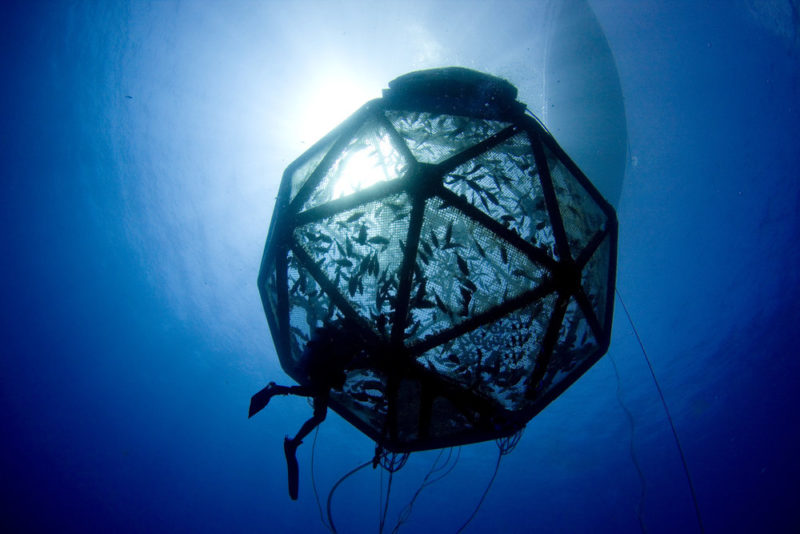A Hawaii-based fish farming company is proposing the first offshore aquaculture for the Gulf of Mexico, a pilot-scale project off Florida.
Kampachi Farms LLC proposed a single-net floating enclosure where up to 20,000 Almaco jack — yellowtail amberjack, also known as kampachi or kahala — would be reared about 45 miles west-southwest of Longboat Pass and Sarasota Bay.
The U.S. Environmental Protection Agency issued a draft permit in August and concluded a public comment at the end of September before issuing a final permit.
Kampachi Farms pioneered open-ocean fish culture off Hawaii, and the gulf venture could be the first in federal waters off the continental United States. The new project, dubbed Velella Epsilon, requires other permits from multiple federal agencies, including NMFS and the Corps of Engineers.
An interagency working group prepared a draft environmental assessment to look at potential environmental impacts of building and operating the fish farm. Commercial and recreational fishing advocates along with environmental activists are raising objections, saying introducing dense assemblages of non-native fish will harm the local ocean environment and the existing fishing industry.
One objector, the environmental group Friends of the Earth, filed a protest with NOAA in June over the Sea Grant program providing a grant for a floating fish pen pilot project off New Hampshire. The prospect of worldwide growth in the aquaculture industry coming to U.S. ocean waters now includes proposals for projects off Long Island, N.Y., and California.
“This project will have serious adverse consequences for federally endangered and threatened species and their critical habitat, yet Sea Grant never assessed those risks in any legally required consultation with the National Marine Fisheries Service and the U.S. Fish and Wildlife Service,” in violation of the Endangered Species Act, the groups asserted in a letter to NOAA.
The Vella Epsilon project likewise has grant funding through Florida Sea Grant.
“The primary goal of the demonstration project is to help the local communities in the Gulf of Mexico to understand the ancillary benefits that offshore aquaculture can bring to fisheries and to recreational tourism," Kampachi CEO Neil Anthony Sims says.
Kampachi applied to the EPA for a permit in June 2018, because fish farming counts as a discharge of fish waste into federal waters under the law. “The proposed facility would be the first aquaculture facility to operate and discharge in federal waters of the eastern gulf and, thus, the significance of any impacts to the environment from such a facility is not known,” the EPA notes in its environmental assessment.







